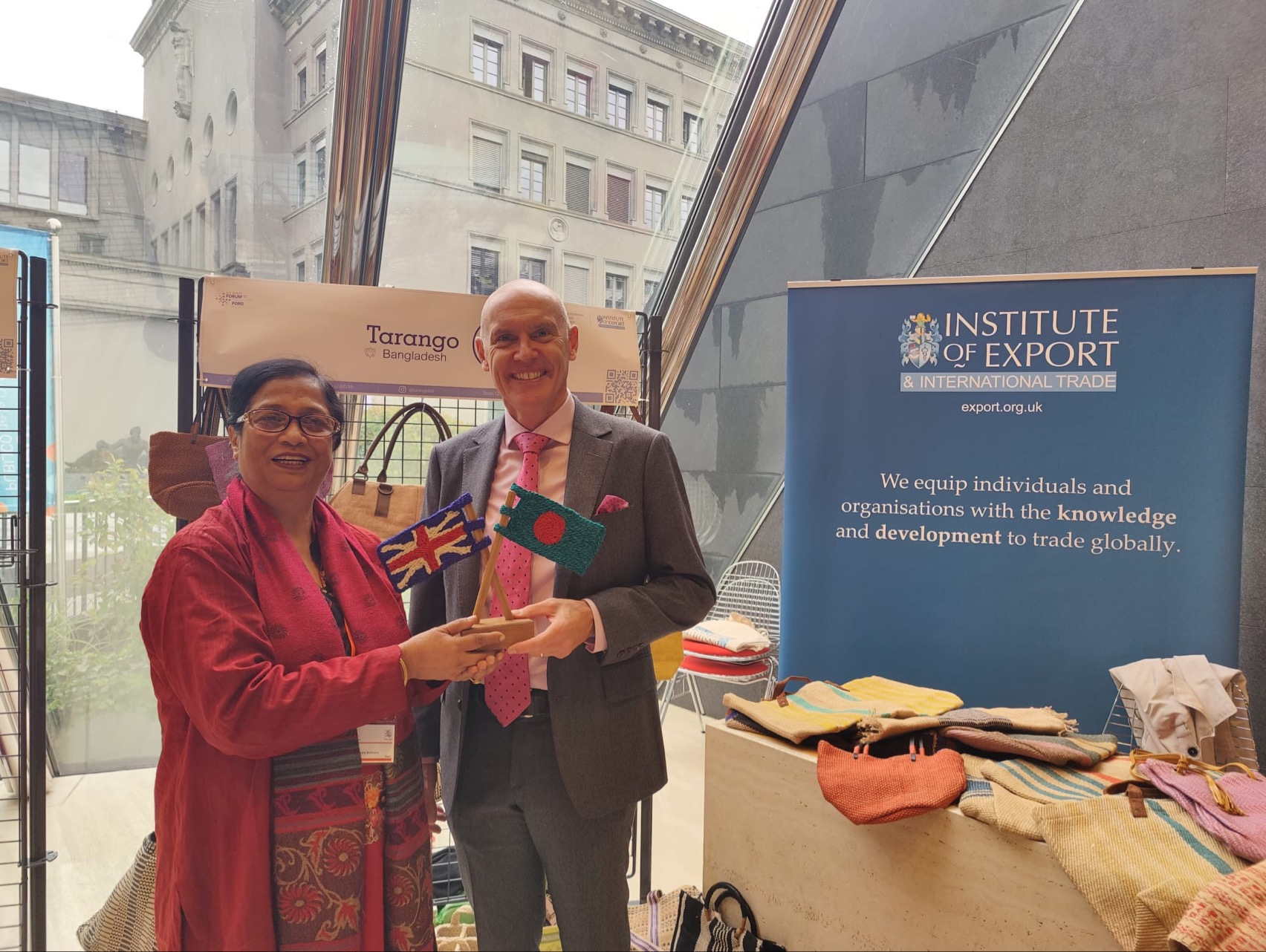
This year’s World Trade Organization (WTO) Public Forum in Geneva closes today (30 September). Despite taking place against an uncertain global backdrop – and a tumultuous week for the UK economy in particular – the overall tone at the event was one of optimism about what trade can achieve.
Dr Ngozi Okonjo-Iweala, director general of the WTO, did kick off the forum with a stark warning that the world is “edging” into a global recession.
Full digitalisation
But for Marco Forgione, director general at IOE&IT, faster progress towards digitalized trade could potentially offset the risk of any economic decline.
“If we were driven and had implemented digitalization in a more coordinated manner across the globe,” he said, “we wouldn’t be looking at recession because of the advantages — the easements and the facilitation — that exists throughout global trade through digitalization. We would be avoiding that threat and risk of a recession,” he told the Politico Morning Trade UK newsletter.
Full digitalisation in international trade would, he said, enable the exchange of trade-related data, documents and electronic authorizations between parties in the supply chain.
Global trade in the world’s interest
The more that can be done to ease global trade, the better it is for the world economy. As Forgione told the WTO meeting: "When businesses trade internationally they are more profitable, more innovative, they employ more people and are more sustainable and resilient.”
But there is another major block to global trade, which this year’s Public Forum was focused on addressing; that is the negative impact of gender inequality.
The negative impact of inequality
As Forgione put it, “If you are a woman trying to trade internationally, you face the biases of the system and challenges of access to finance and access to logistics. This is why the work being done by the women leading the WTO, ITC and UNCTAD to highlight this issue is so important.”
Addressing the issue of the role men should play in creating a more level playing field, Forgione said, “What should men do? We shouldn’t stand aside. We need to be full partners in making sure that women can achieve their potential. In 2022, we dream not of going to the Moon, but of going to Mars. We have telecommunications that link the entire globe in real time.
“We have done all of that while 50% of our society have been excluded and prevented from reaching their full potential. Just dream for a minute, imagine, what the world would be and what we could achieve if everyone could realize their potential, no matter who they are or where they are from.
“There is no ambition too great. But it is time to stop dreaming and imagining what that future could be. It’s time to start building that future.”
Forwards for equality
Pointing to the recent growth of IOE&IT, Forgione explained that it was a good example of how gender equality could drive an organization forward.
“I know practically the impact having women freed to achieve their potential can have. Throughout a period of instability that included Covid and Brexit, the IOE&IT has grown 1,000%. One of the main reasons we have been able to achieve that growth is because we took the active decision to promote women into senior leadership positions.”
Now is the time for action
Forgione highlighted that Okonjo-Iweala in her opening remarks had noted that it was way back in 1906 that CJ Walker became the first female self-made millionare in the US.
“In 2022 of the 2,668 billionaires in the world, only 328 are women. So we haven’t even begun the journey. There is a lot to do and we will only achieve it if we come together to overcome exclusion based on gender,” he said.
“Gender equality in trade is not an option, it is a must. In order to make a significant impact, we need to have more women involved in trade.
“When you have businesses led by women, you’re transforming communities much more than with male-led businesses. Investing to support and develop female entrepreneurs has a disproportionate impact on the whole of that community and that society.”
“From capacity building to networking to shaping the policy agenda, we’re committed to creating opportunities for women entrepreneurs around the world. It is, as the WTO Public Forum claimed, time to move from ambition to action.”



